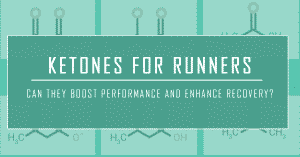Recovery is perhaps the single most important aspect of training outside the actual running and workouts you do. In fact, without proper recovery, even the best laid training plans and workouts will be rendered useless.
That’s because we actually improve and get better through the recovery process.
Training breaks down our muscle fibers and produces stress in the body. During the recovery process, the body recuperates from this stress and muscle damage and builds itself back slightly stronger so it’s better prepared to handle the training you’re doing.
And, your body needs key nutrients to aid in this recovery process.
That’s why the foods and nutrients you consume after your workouts are so critical.
So, in today’s email we’re going to take a look at the science on…
- The critical role timing plays in how well you’re able to absorb and deliver the nutrients your body needs.
- The optimal amounts of carbohydrates and proteins you need
- Other nutrients shown in research to aid in recovery
Maximizing nutrient absorption in the first 90 minutes
Many scientific studies have confirmed that the first window of recovery begins within 30 minutes following prolonged exercise.
This is because your muscles almost act like sponges in the first couple of hours post-workout, enabling them to absorb nutrients more efficiently and process them faster.
As an example, work by Ivy and colleagues showed that glycogen synthesis rates are 22% and 24% slower from hours 2 to 4 during exercise recovery in contrast with the immediate 2 hour window following exercise and carbohydrate ingestion.
Therefore, nutrient intake should begin at least 30 minutes after you finish your run and continue for about an hour to 90 minutes after.
What to eat in the first window
4 to 1 Ratio of Carbs to Protein
During this initial 30-90 minute window, you should consume a 3 or 4 to 1 ratio of carbohydrates to protein. This means that for every 3-4 grams of carbs you consume you also need 1 gram of protein.
This combination of carbohydrates to protein helps the body re-synthesis muscle glycogen more efficiently than carbohydrates alone.
The consumption of too much protein in this process will inhibit your body’s absorption of the carbohydrates by slowing the gastric emptying rate.
However, a little bit of protein helps produce muscle building amino acids and hormones.
You should aim for about 100 to 300 calories, mostly depending on the duration and intensity of your workout (i.e. shorter workouts require less calories to recover) and how much your stomach can handle.
Creatine
Creatine is perhaps the most under-utilized, scientifically proven supplement by runners.
The number of studies supporting its effectiveness at building muscle and aiding in recovery are numerous.
In fact, the performance-enhancing effects of creatine are irrefutable and among the most widely researched of all natural supplements.
In regards to recovery in particular, creatine has been shown in the literature to…
- Reduce oxidative stress biomarkers after aerobic exercise (citation)
- Reduce cell damage, muscle soreness and inflammation after running 30k (citation)
- Decrease muscle damage and an improvement in muscle function after exercise (citation)
An efficacious dose of creatine is between 3 to 5 grams.
Creatine is something that does take time to build and store in the muscles, so taking it once in a while likely won’t help you too much. It’s a supplement that is best taken daily.
I’ll also add that in my own experience, creatine quality does make a huge difference.
Cheaper sourced versions of creatine monohydrate can cause GI issues and bloating, which is why creatine sometimes gets a bad rap.
However, high quality sources of creatine don’t have these issues. It’s another example of how the quality of the supplements you take can make a huge difference in their effectiveness.
Amino Acids (Specifically Leucine)
Amino acids are the building blocks of life. Your body synthesizes them to make your muscles (along with other hormones, neurotransmitters, and other tissues).
There are nine essential amino acids (EAAs) that your body can’t make on its own and you need to get through diet. A subset of amino acids called branched chain amino acids (BCAAs), specifically leucine, isoleucine, and valine, make up about one-third of the muscle protein in your body and are particularly important for muscle metabolism.
The reason I recommend supplementing with amino acids post-workout is that they are a “backdoor” to getting in more of the muscle building nutrients we need without adding more protein, which we already know can interfere with gastric emptying.
As an example, research shows that even when we fall short of the recommended protein mark, if the protein eaten is relatively high in leucine, it stimulates muscle protein synthesis as well as if they’d eaten 4 times as much total protein.
In addition, studies have shown that supplementing leucine with carbohydrates post workout boosted muscle glycogen values by 14% compared to just carbohydrate alone, despite using less total overall carbohydrate.
Older runners also exhibit a blunted muscle protein synthesis response compared to younger adults. Recent research has suggested that the reduction of muscle protein synthesis can be overcome by consuming greater quantities of leucine (cite).
HMB (β-hydroxy-β-methylbutyrate)
HMB is another supplement that is rather mainstream in bodybuilding and other endurance events, but hasn’t been adopted by many runners yet.
HMB is made in our body when breaking down the amino acid leucine.
However, since only a small percentage of leucine is converted to HMB, it is not possible to obtain significant amounts of it from diet, or by taking leucine supplements.
In addition to that, as we age our body’s ability to produce HMB slows down – the older we get the less HMB there is in our bodies.
And that’s not good because the evidence from the research shows it can be a huge benefit when it comes to recovery.
Research shows that HMB increases muscle protein synthesis, reduces muscle protein breakdown, and helps preserve muscle health and mass.
There have even been specific studies on how HMB supplementation can improve recovery from running.
Nunan et al. have also reported that a daily intake of 3 g of HMB starting from 11 days prior to performing downhill running and continuing to 3 days post-running hastened the recovery of isometric and isokinetic muscle function, thereby indicating that HMB supplementation can contribute to muscle recovery.
It may also help improve body composition in general. One small study on midlife women (average age 53) found that HMB along with vitamin D3 supplementation decreased intermuscular fat in resistance training women during a 12 week trial.
Making Post-Run Nutrition Easy
Obviously, highlighting all these ingredients and their potential to aid in recovery is great, but actually getting them all in can be a hassle.
In fact, I used to have an entire cabinet in the kitchen with all of these ingredients that I’d mix up post-workout. My wife didn’t like it too much and it definitely made being consistent more difficult.
That’s why I was super excited when David at Prevenix, one of our partners, told me about the muscle recovery product they were launching called Muscle Health PLUS.
They took all the most effective ingredients and put them all in one supplement. This has made it so much easier for me to stay consistent and it’s made a huge difference in how quickly I feel recovered.
If you’re interested in checkout out Muscle Health PLUS, you can use this link to check it out and use the code RTTT15 to save 15% on your first order.
I combine muscle health plus with more traditional whole recovery foods, such as…
- 1 Banana + 2 Tablespoons Peanut Butter
- 1 cup yogurt + 1 cup Mixed Fruit
- 1 medium Sweet potato + 1 inch Beef Jerky (when I run in the evening)
- 1 medium apple + 2 Tablespoons Peanut Butter (when my 4-year old doesn’t eat all the apples)
- 2 servings egg whites + 1 cup sauteed spinach + 1 serving fruit and/or toast
These are pretty much my go-to foods that have a roughly 4 to 1 ratio of carbohydrates to protein and contain 200-300 calories.
If I have a long run or a super hard workout, I may often make a post-run smoothie with fruits, protein powder, muscle health plus, and a little ice and milk for some extra calories.
You don’t need to follow these recipes or post-workout meal ideas exactly, substitute in the types of foods you like as long as you’re getting that 4 to 1 ratio of carbohydrates to protein and, if possible, some of the proven recovery supplements.
Start focusing on nourishing your body correctly after your runs and watch as your recovery and your race times get faster!







